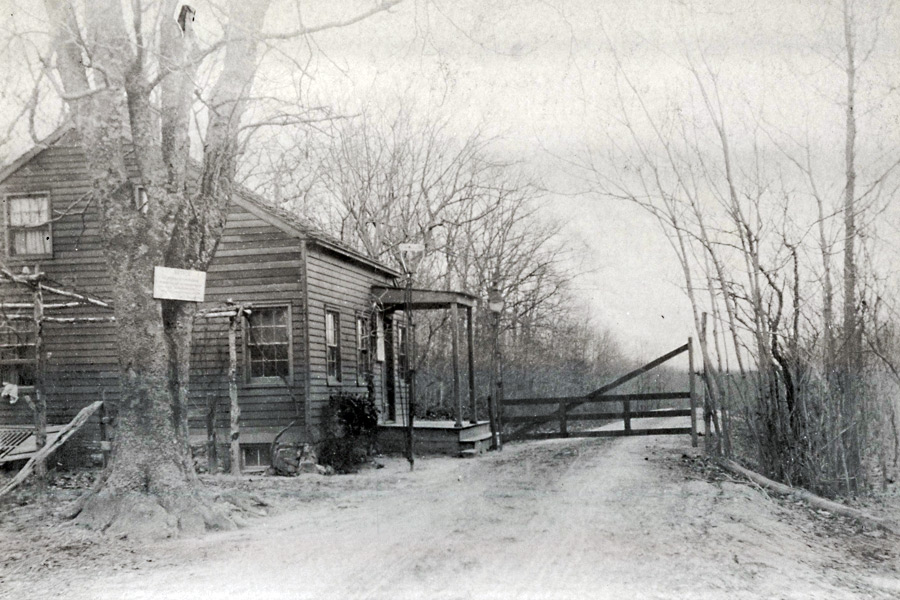Anti-Hamptonization Efforts Turning Greenport into the Land of No

Preservation efforts can go too far, apparently.
Parking codes signed into law in the Village of Greenport have once again thrust the North Fork’s lone village into political turmoil, with village residents, business owners, and even a former mayor expressing their grievances to Mayor Kevin Stuessi and the Board of Trustees at recent meetings.
Former Mayor Dave Kapell, who served in the role from 1994 to 2007 and owns Kapell Real Estate on Front Street, has found himself back in the limelight of village politics with a case of deja vu.
“Back in 1990 – and I was not on the board at the time, but I was one of a group of businesspeople that started meeting, similar conditions to what we have right now – where there was a rash of store vacancies and it was difficult to do business in the village,” Kapell said. “A bunch of us got together and we recognized that the parking requirement that was on the books at that time, which for example, required one parking space for every five seats in a restaurant, was literally impossible for all but a small handful of properties to meet, because properties in downtown Greenport, like in New York City, for example, are builtlot line, so there’s physically no place to put cars off the street. If somebody wanted to open a restaurant and couldn’t meet the parking requirement, they had to get a variance. And the variance process was extremely political.
“We approached then-Mayor George Hubbard and said, ‘Why not just get rid of the requirement?’” he continued. “If there’s a parking problem to solve, it should be a municipal solution. That’s the only way it can work, because it’s just physically impossible for the private property owner to do it. If the village wanted to do it, they could expand parking lots, which would involve demolishing probably residential structures abutting existing lots, or build a garage. And nobody wants either of those scenarios. So what happened was the village did abolish the parking requirement in 1990. It read that any building, any lot, with a building on it that was built before the enactment of that code, was exempt from any parking requirement. As a result of which you’ve got restaurants all over the village now – Noah’s, Frisky Oyster, Lucharitos.”
But Stuessi’s administration, according to the activists, has rolled back the codes that allowed Greenport to thrive, both for tourists and residents. Codes signed into law in 2023 require a business in certain areas of the village that are more than 1,500 square feet to provide parking, or else make a payment to the village.
“In Greenport, we pride ourselves on Mom and Pop, grassroots, bottoms up retail operations,” Kapell added. “That’s what distinguishes Greenport, frankly, from most other communities on the East End now, which have gone quite glitzy. And if you put that type of impediment in front of a small operator trying to get their boots on the ground, it kills it off at day one.”
While the decline of some business in Greenport can be attributed to lingering effects of the COVID-19 pandemic, village hall has not properly addressed the issues, residents said – and aggressive parking requirements do more harm than good to a village that is lightly attended by outsiders for most of the year.
“We have empty storefronts, some of which are not the direct fault of this administration, but are the result of a perfect post-COVID storm that was clearly forecasted and frankly, one that we should’ve all seen coming,” resident and realtor at Compass Real Estate Bridget Elkin said at a July board meeting. “Instead of streamlining our code to attract and incentivize the type of development we want, we are coding and legislating for the worst case scenarios, creating unintended barriers to the very entrepreneurial spirit that has historically defined us. While most villages and towns and cities around the world are removing parking requirements, Greenport is doubling down on them. We should not be giving up valuable land to house cars when one can find multiple parking spots the other 325 days of the year.”
As for what has driven this code enforcement, Eric Elkin, also a realtor at Compass and the husband of Bridget, says that efforts by Stuessi and the board to preserve Greenport, and prevent “Hamptonization,” as many North Forkers say, have gone too far.
“We need to focus on what we want rather than what we don’t want,” Eric Elkin said. “In trying to block certain types of investment, we’re actually blocking things that we might want and need. I understand that there’s a real anxiety, partly because of cautionary tales on the South Fork, real and imagined, that if we don’t intervene, big business, big investment, private equity, however you want to characterize it, are going to come in, and they’re going to commandeer the future of the village. And I am empathetic to that sensitivity, but I also don’t think that we should create a set of circumstances that Mom and Pop operators or small business owners are equally as disincentivized from investing.”
What works in Greenport, as opposed to thinking about what wouldn’t work, is the key to solving the problems, Elkin explains.
“In 1950, Greenport had a fantastic assortment of small retail businesses,” Elkin added. “Well, what are the set of circumstances that allows that small business to thrive today? It’s about a bigger percentage of the community, whether they’re full time or second home residents. It’s not just about businesses trying to make it work in three months to subsidize the other nine months. How can we become a more attractive community for year-round residents, or second homeowners who are going to spend more time here, and small business owners that are going to make the kind of investments that we want into the community? It’s eliminating things like parking mandates. It’s an investment to, ‘If you build it, they will come.’ An investment in services and amenities that give people more incentive to come and spend time here in the winter. I’m not just talking about day trippers. I’m talking about people, whether they want to come for a week in January and stay at a beautiful hotel and spend time in the businesses, or spend money in the businesses. Or it’s families like myself and others, you know, young families who feel like they can make this place their home. There’s a ton of anxiety over the fact nobody can afford homes here.”
Additionally, re-zoning efforts for affordable housing have gone nowhere, according to Kapell, who spoke at the July 24 board meeting for his first time since his retirement as mayor in 2007.
“As for housing, although the village promised to quickly follow up the rezoning with initiatives to expand the stock of affordable housing, nothing has happened other than lip service combined with inaction,” Kapell said at the meeting. “What’s more important for the people and the future of Greenport? A place to live and raise a family, or a place to park your car?”
On Aug. 8, he posted in the Facebook group Residents for Greenport saying he received a courtesy call from Southold police that someone had complained about where his truck had been parked outside of his real estate business. It’s the same place he parked for 40 years, he said, and to not escalate the situation for the police, he moved the truck. But in that post, he called the move “a blatant attempt at intimidation” for speaking his mind.

It’s not the first time alleged targeted code enforcement has been an issue in the village. Former code enforcement officer Alex Bolanos claimed he was instructed by Mayor Stuessi to target the restaurant Z’Erdem, owned by 75 Main Southampton restauranteur Zach Erdem, for a violation related to garbage cans. When he raised the issue that all the businesses in the area would need to receive this violation, Bolanos alleges Stuessi told him “Only Zach.”
Both Bolanos and Erdem have ongoing lawsuits against the village related to the matter. Stuessi did not respond to a request for comment.
Matt Michel, owner of 1943 Pizza Bar, has been planning to expand his business onto 400 Main Street since he acquired the property, but his plans have been stymied by the parking laws, business approval processes, and moratoriums.
“It’s exhausting trying to explain to everyone why my property sits empty and decrepit,” Michel said. “I hate it just as much as everyone else.”
Michel’s goal with 400 Main Street is to create a larger restaurant space with adequate parking and year-round housing, which he said is “crucial to staff recruitment and retention.” Essentially, he wants to incorporate residential units with the moderately sized restaurant. But due to various delays he finds himself “at a standstill.”
“He hasn’t got the space on the property, unless he builds a shack surrounded by parking,” Kapell said.
Even fully developed businesses are feeling the effects of alleged village overreach.
“It’s in all of our interest to make sure the business district is full and vibrant, and I’m concerned the parking restrictions and certain conditions are making it very difficult for business owners to invest successfully in Greenport,” Brent Pelton, CEO of American Beech Hotel, said. “I’m concerned that people are putting in applications and not hearing back… and we can’t become a village of no. We have way too many empty storefronts right now. We need to be encouraging businesses to invest in this area.”
In response to Pelton’s speech, Stuessi said that they’ve spoken to the business improvement district, at which time he told Pelton, “As you heard, they’re sitting on quite a bit of funding,” that could “maybe potentially help with this.” He said that pending applications for businesses are “moving through quickly,” and provided an example with a new pizza parlor that’s slated to open, but it’s in front of planning right now. Stuessi then shared an anecdote about spending time with a bicycle shop operator, who toured multiple different vacant properties in the area. He claimed they have loosened parking restrictions in a “number of ways,” and that ultimately the bicycle shop operator not opening a business in Greenport was due to a rent issue, not parking. He essentially said there’s more work to be done, and told Pelton to work with the business improvement district too.
Stuessi was elected in 2023, unseating then-Mayor George Hubbard Jr. – son of the aforementioned Mayor George Hubbard in 1990 – in his effort to win a third term. Stuessi has said he would only serve one term as mayor, with the next election slated for 2027.
Kapell’s 13-year mayoralty has often been credited with Greenport’s 21st century revitalization through the abolition of the village police department which created significant tax reductions, affordable housing policies, regulatory reform, and the development of Mitchell Park on the waterfront. He was succeeded by David Nyce, then George Hubbard Jr.
Despite his return to Greenport politics after an 18-year hiatus, Kapell said he has no interest in returning to the village’s top job.
“I was 45 when I was first elected,” Kapell said. “We need somebody that age now to come in with youthful energy and new ideas.”
– With additional reporting by Ashna Balroop







